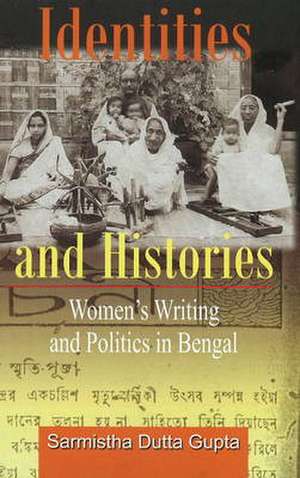Identities & Histories
Autor Sarmistha Dutta Guptaen Limba Engleză Hardback – 8 sep 2010
Preț: 329.08 lei
Preț vechi: 360.97 lei
-9% Nou
Puncte Express: 494
Preț estimativ în valută:
62.99€ • 65.51$ • 52.78£
62.99€ • 65.51$ • 52.78£
Carte indisponibilă temporar
Doresc să fiu notificat când acest titlu va fi disponibil:
Se trimite...
Preluare comenzi: 021 569.72.76
Specificații
ISBN-13: 9788190676021
ISBN-10: 8190676024
Pagini: 294
Ilustrații: b/w photos
Dimensiuni: 146 x 214 x 22 mm
Greutate: 0.48 kg
Editura: Bhatkal & Sen
ISBN-10: 8190676024
Pagini: 294
Ilustrații: b/w photos
Dimensiuni: 146 x 214 x 22 mm
Greutate: 0.48 kg
Editura: Bhatkal & Sen
